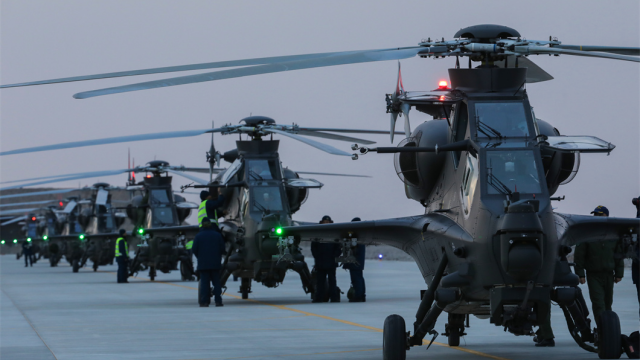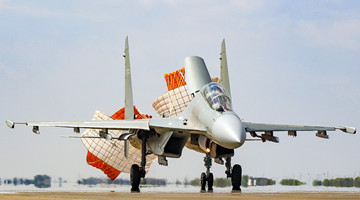By Feng Ying
In the early morning on May 6, Gaza militants have reached a ceasefire agreement with Israel as a result of the mediation of Egypt, assisted by Qatar and the United Nations. According to the agreement, Israel stopped bombing the Gaza Strip while the parties in the Gaza Strip stopped firing rockets into Israel when the agreement came into effect.
This is the worst combat since Palestinian-Israeli conflict since 2014. Although the situation is temporarily calm, the timing of the conflict is unusual and its impact on the regional situation cannot be neglected.
The conflict took place during a period when some major changes occurred in the Middle East. After US President Donald Trump took office, he treated Iran as his main opponent and tried to promote the regional cooperation between the Arab countries and Israel, as well as to establish a regional anti-Iran alliance. In addition, the US has recognized Jerusalem as Israel’s capital and moved its embassy in Israel from Tel Aviv to Jerusalem. The US also recognized the Golan Heights as Israeli territory, etc. All these indicate a new height of US partiality towards Israel.
Tian Wenlin, a researcher at the Institute of Middle East Studies of China Institutes of Contemporary International Relations (CICIR), explained the Trump administration’s favoritism toward Israel from three perspectives. From the perspective of geopolitics, the US supports Israel in the Middle East in order to play a check and balance role against the Arab countries. From the perspective of domestic politics, the Jewish power in the US is strong and has a great influence on the US Middle East policy. From the perspective of religious purposes, the US domestic religious forces regard Israel as the “bridgehead” of the Christian revival in the Middle East.
Tian pointed out that one of the long-term consequences brought by the drastic adjustment of the US Middle East policy is the gradual marginalization of the Palestinian issue, which also makes the Palestinians completely lose their trust in the US. As the Palestinian “Disaster Day” approaches on May 15, the Palestinian Islamic Resistance Movement (HAMAS), which controls the Gaza Strip, has already started to make use of people’s tragic sentiments to attack Israel and consolidate its influence in the Gaza Strip.
According to experts, another background of the Israeli-Palestinian conflict is related to the upcoming Donald Trump’s much-derided plan for the Middle East, the so-called “Deal of the Century”.
Dong Manyuan, a researcher at the China Institute of International Studies, pointed out that Trump began to brew the so-called “Deal of the Century” for peace in the Middle East since he took office. Recently, he announced that the deal will be officially launched after the Muslim holy month of Ramadan. However, since this agreement does not include the content of “a return to the 1967 borders”, which advocates Jerusalem as the capital of Israel and denies Palestine refugees the right to return to their homeland, the interests of Palestine have been seriously violated and therefore the deal is being strongly opposed by the Palestinians.
In addition, the right-wing forces won a majority in the latest parliamentary elections in Israel. Benjamin Netanyahu, who has always had a tough stance on the Palestinian-Israeli issue, is expected to be on his way to a fifth term as prime minister. As a result, the hope to solve the issue through negotiation is getting dim on the Palestinian side.
Most of the rocket attacks by Palestinian armed groups were sporadic in the past. However this time, it is extremely unusual where a massive and intensive launch of rockets penetrated Israel’s advanced defense system and killed Israeli personnel. This also shows that the military strength of HAMAS has not been gravely weakened by the continuous Israeli attacks in last year.
Dong said that although the Israeli-Palestinian conflict has ended temporarily, the hostility between the two sides has not eased. While increasing its support for Israel, the US will continue to try to pressure Saudi Arabia, Egypt, Jordan and other countries to persuade Palestine into accepting the “Deal of the Century”.
Tian is also pessimistic about the prospects of the Palestinian-Israeli situation. He pointed out that May 9 marks Israel’s Independence Day and Prime Minister Netanyahu also faces tough negotiations to form a cabinet. Perhaps these are the reasons for Israel to timely stop. However, it is difficult for Palestine to accept the heavily biased “Deal of the Century”. The anti-American and anti-Israeli sentiments may further intensify. The Israeli-Palestinian conflict will not really stop in the foreseeable future; instead, it may become even more frequent and intense.
(The article was published on the PLA Daily on 10 May, 2019. It is translated from Chinese into English and edited by China Military Online.)









